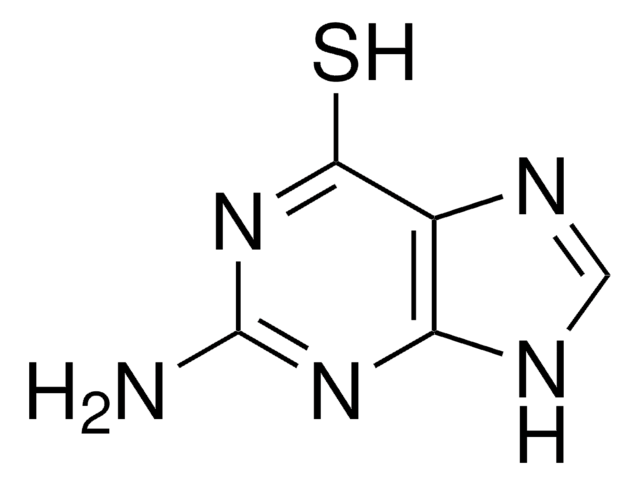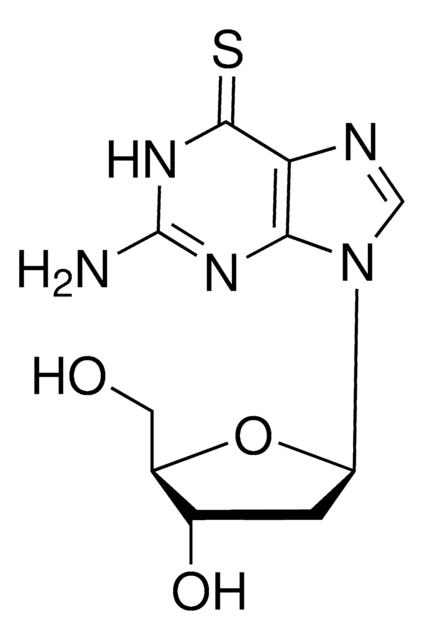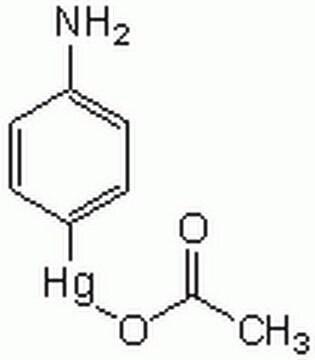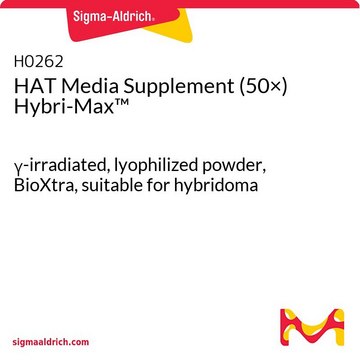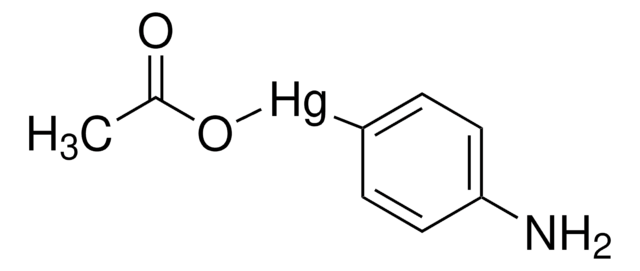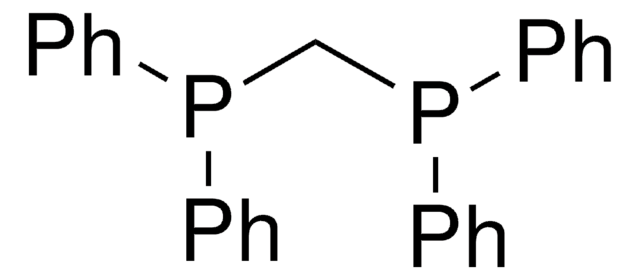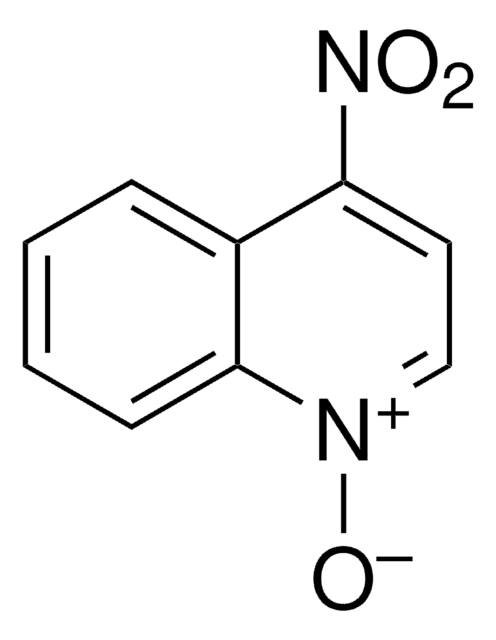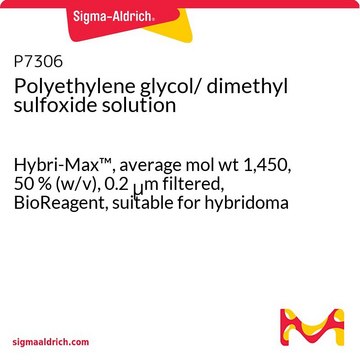A4660
6-Thioguanine
Hybri-Max™, 50 ×, γ-irradiated, lyophilized powder, BioXtra, suitable for hybridoma
Synonyme(s) :
2-Amino-6-mercaptopurine, 2-Amino-6-purinethiol
About This Item
Produits recommandés
Source biologique
synthetic (organic)
Niveau de qualité
Qualité
Hybri-Max™
Stérilité
γ-irradiated
Gamme de produits
BioXtra
Pureté
~98%
Forme
lyophilized powder
Concentration
50 ×
Technique(s)
cell culture | hybridoma: suitable
Impuretés
endotoxin, tested
Pf
≥300 °C (lit.)
Solubilité
1 M NaOH: 50 mg/mL, clear to slightly hazy
Température de stockage
room temp
Chaîne SMILES
NC1=Nc2nc[nH]c2C(=S)N1
InChI
1S/C5H5N5S/c6-5-9-3-2(4(11)10-5)7-1-8-3/h1H,(H4,6,7,8,9,10,11)
Clé InChI
WYWHKKSPHMUBEB-UHFFFAOYSA-N
Informations sur le gène
human ... IMPDH1(3614) , IMPDH2(3615)
Vous recherchez des produits similaires ? Visite Guide de comparaison des produits
Catégories apparentées
Application
Actions biochimiques/physiologiques
Reconstitution
Informations légales
Mention d'avertissement
Danger
Mentions de danger
Conseils de prudence
Classification des risques
Acute Tox. 3 Oral
Code de la classe de stockage
6.1C - Combustible acute toxic Cat.3 / toxic compounds or compounds which causing chronic effects
Classe de danger pour l'eau (WGK)
WGK 3
Point d'éclair (°F)
Not applicable
Point d'éclair (°C)
Not applicable
Équipement de protection individuelle
Eyeshields, Faceshields, Gloves, type P2 (EN 143) respirator cartridges
Certificats d'analyse (COA)
Recherchez un Certificats d'analyse (COA) en saisissant le numéro de lot du produit. Les numéros de lot figurent sur l'étiquette du produit après les mots "Lot" ou "Batch".
Déjà en possession de ce produit ?
Retrouvez la documentation relative aux produits que vous avez récemment achetés dans la Bibliothèque de documents.
Les clients ont également consulté
Notre équipe de scientifiques dispose d'une expérience dans tous les secteurs de la recherche, notamment en sciences de la vie, science des matériaux, synthèse chimique, chromatographie, analyse et dans de nombreux autres domaines..
Contacter notre Service technique